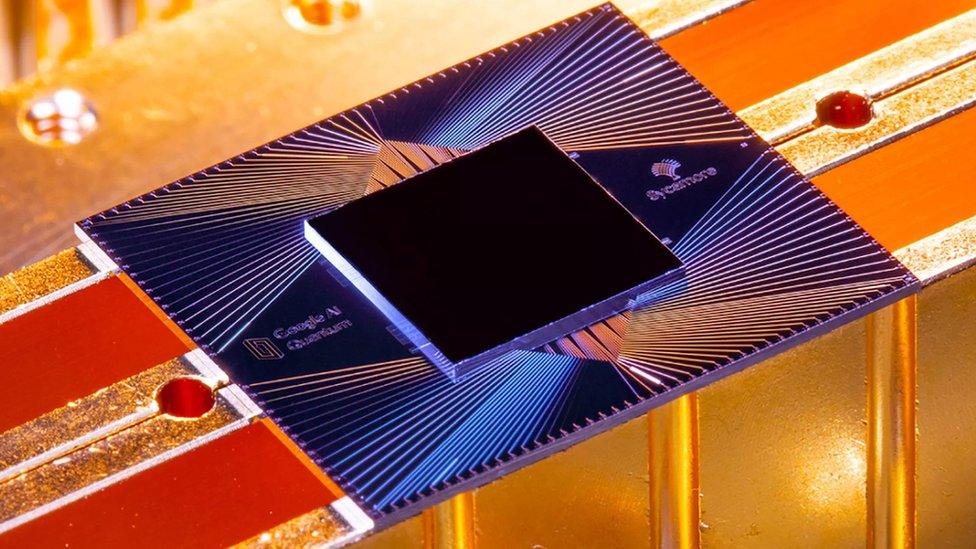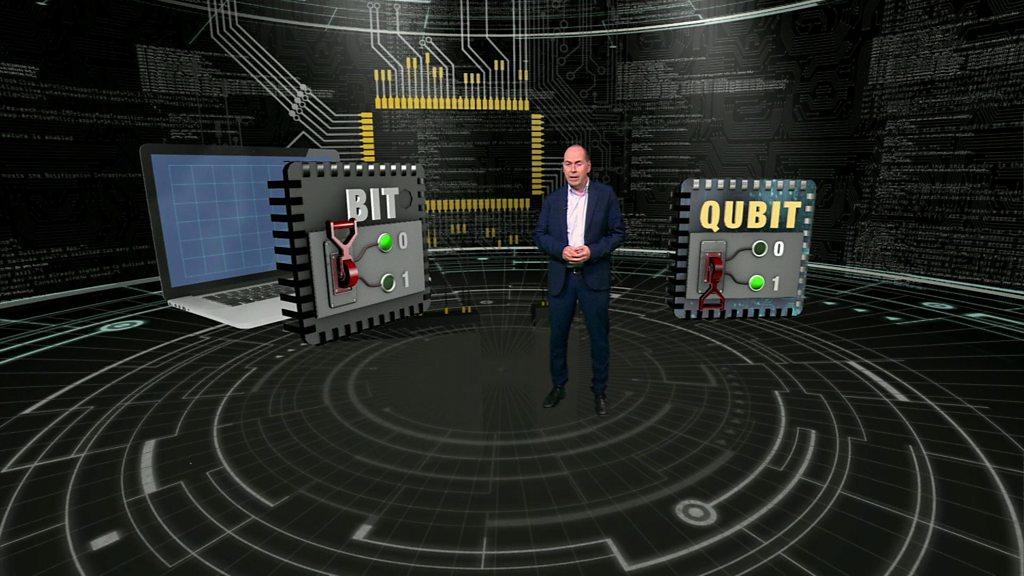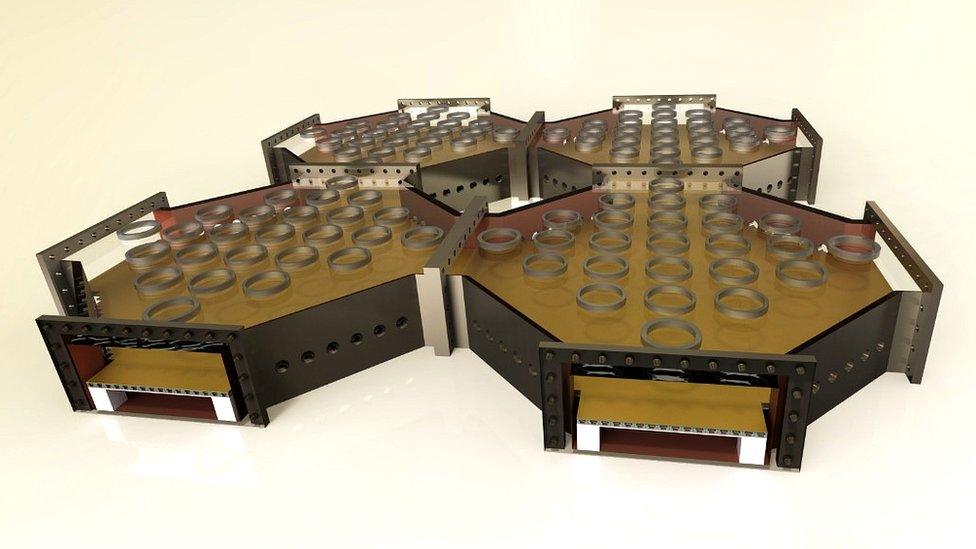Universal Quantum: Brighton tech company joins quantum computing race
- Published

The company was founded by scientists Winfried Hensinger and Sebastian Weidt
Investors have backed a Brighton-based firm aiming to build the first large-scale quantum computer.
Universal Quantum, formed by scientists from the University of Sussex, has received £3.6m in early funding.
It is competing against tech giants to deliver a machine that solves problems beyond current super-computers.
"We have a very unique technology solution and without doubt Google and IBM will take notice," said Professor Winfried Hensinger.
Quantum computing promises to revolutionise computing and bring a range of benefits, from improved drug discovery to fertiliser production.
However, technical challenges have so far prevented the development of a machine that can deliver any practical benefits.
In 2017, a University of Sussex team published a "blueprint" of a new way to build a modular quantum computer, using microwave technology used in mobile phones instead of lasers.
"We can now make the next step and actually build machines based on this technology," Prof Hensinger told BBC News.

The company aims to increase the scale of existing prototypes
The "relatively small" investment of £3.6m will allow the company to find a site and employ key staff, before going back to investors to "raise a lot more money" to finish the project.

WATCH: Quantum computing explained in 20 seconds
What is quantum computing?
In classical computers, the unit of information is called a "bit" and can have a value of either 1 or 0.
But its equivalent in a quantum system - the qubit (quantum bit) - can be both 1 and 0 at the same time.
This phenomenon opens the door for multiple calculations to be performed simultaneously. But the qubits need to be synchronised using a quantum effect known as entanglement, which Albert Einstein termed "spooky action at a distance".
Scientists have struggled to build working devices with enough qubits to make them competitive with conventional types of computer.

Prof Hensinger said he did not have a timeframe for completion, but was confident that a working quantum computer would become a reality.
"With the technology we have available we can now say with some reasonable certainty we can actually build these machines, but it doesn't mean they are easy or it will happen really fast.
"Without doubt it will take a long time and there's lots of challenges we have to overcome," he said.
While it was "certainly a race, it's good there are other players outside" such as Google and IBM, he said.
Village Global, which is backed by Bill Gates, Mark Zuckerberg and Jeff Bezos, is among a group of investors to back the project.
It said Universal Quantum was the only company to demonstrate it could make the technology work without the need for "millions of lasers, which quickly becomes unfeasible at scale".
- Published23 October 2019

- Published30 March 2018

- Published30 March 2018

- Published1 February 2017
